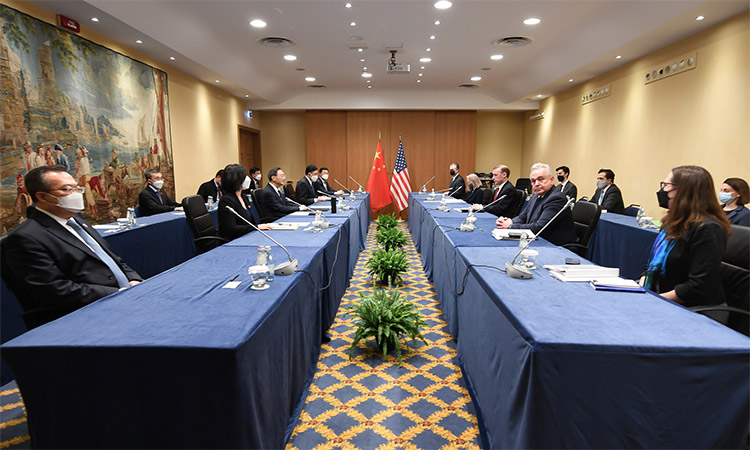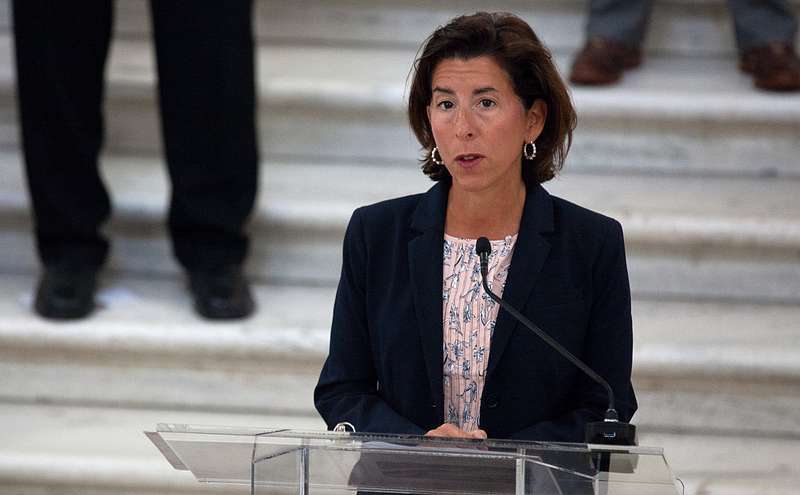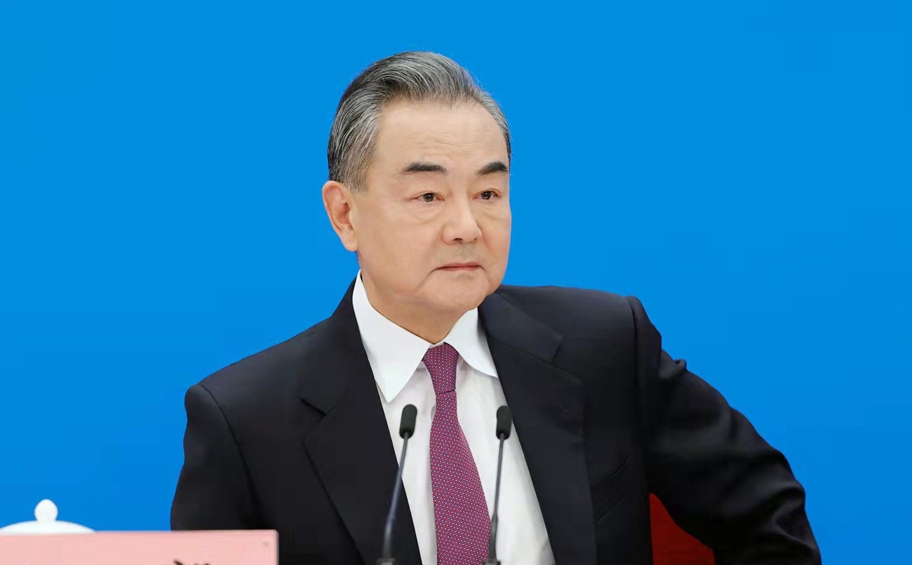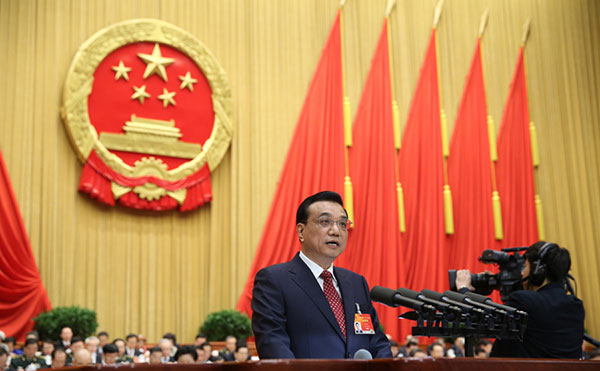
ICAS Bulletin (online ISSN 2836-3418, print ISSN 2836-340X) is published every other week throughout the year at 1919 M St NW, Suite 310, Washington, DC 20036.
The online version of ICAS Bulletin can be found at chinaus-icas.org/bulletins/.

– On March 14, the U.S. National Security Advisor Jake Sullivan met with China’s top-ranking diplomat, Yang Jiechi, in Rome for 7 hours to discuss challenges facing their bilateral relationship such as the war in Ukraine.
– On March 13, U.S. officials stated that Russia sought military equipment and economic assistance from China before invading Ukraine. The Chinese Embassy in Washington denied the existence of such a request.
– On March 10, top U.S. intelligence chiefs reported to the Senate that Putin misjudged the extent of Beijing’s support. They also suggested that China overestimated Russia’s ability to decisively defeat Ukraine, and that the U.S. overestimated Russian military prowess.
– On March 9, the Biden Administration noted that Russia and China are coordinating their propaganda to promote a narrative of Pentagon-financed biological weapons labs in Ukraine. Analysts suggested that Russia may be trying to create a scapegoat for a chemical attack of its own.
– On March 8, Chinese President Xi Jinping used the term “war” regarding Ukraine for the first time as Russia faced accusations of war crimes and provoking humanitarian crises, signaling a shift in Chinese tone.
– On March 7, Chinese Foreign Minister Wang Yi referred to the China-Russia strategic partnership as “ironclad” at the annual meeting of China’s ceremonial parliament and pledged to continue normal trade cooperation.
– On March 7, U.S. Secretary of State Antony Blinken condemned China’s tacit support to Russia while appealing to uphold international order in a Vilnius press conference. At the same time in Brussels, EU foreign affairs spokesman Peter Stano demanded that China help negotiate a ceasefire.

– On March 14, ZTE Corp., a Chinese telecom equipment manufacturer, will face a U.S. federal court over an alleged conspiracy to commit visa fraud—a violation of the probation it received following its 2017 guilty plea for illegally shipping U.S. technology to Iran.
– On March 8, U.S. Secretary of Commerce Gina Raimondo warned that Washington could “essentially shut down” Chinese companies that defy U.S. sanctions on exporting to Russia by denying them equipment and software.
– It was reported on March 8 that China is in talks with its state-owned firms to explore increasing their stakes in Russia’s state-owned gas and aluminum giants.
– On March 8, it was reported that the Chinese industrial e-commerce firm Zhenkunhang is working with advisors to revive a potential $500 million initial public offering in the U.S. This IPO would make Zhenkunhang the largest of many Chinese companies this month, breaking the moratorium on U.S. listing, which started last June.
– On March 8, an American Chamber of Commerce in China poll indicated that less than half of surveyed foreign companies are confident about the stability of their investments in China, down from 61% last year.
– On March 7, it was reported that a proposed executive order to limit American investments in Chinese firms is in dispute between U.S. National Security Advisor Jake Sullivan, who argues the rule is needed to prevent indirect U.S. funding the Chinese military, and the Departments of Commerce and the Treasury who wish to preserve American firms’ ability to engage in Chinese markets.
– On February 28, a court in the Democratic Republic of Congo stripped management control of the critical Tenke Fungurume cobalt mine from Hong Kong-listed China Molybdenum Co., transferring it to a state-owned firm.

– On March 9, Chinese Foreign Ministry spokesperson Zhao Lijian announced that China has dispatched its first shipment of humanitarian aid to Ukraine, worth 5 million yuan ($791,300), through the Chinese Red Cross Society.
– On March 7, Chinese Foreign Minister Wang Yi avoided questions regarding Beijing’s refusal to explicitly condemn Russia’s invasion of Ukraine, but announced that China will send aid to Ukraine and “is willing to continue to play a constructive role in promoting peace talks.”
– On March 6, Ukrainian Foreign Minister Dmytro Kuleba said that he had received assurances that “China is interested in stopping this war” following various discussions with Wang Yi throughout the week.
– On March 3, the China-backed Asian Infrastructure Investment Bank (AIIB) announced a suspension on loans to Russia and Belarus in response to their invasion of Ukraine.

– On March 11, Chinese Premier Li Keqiang announced that he will be stepping down from his post at the end of his second term later this year, pointing to a potentially comprehensive reshuffle at the 20th Party Congress.
– On March 5, China announced that it will be increasing its defense spending by 7.1% to $229 billion, up from a 6.8% increase at the beginning of 2021.
– On March 5, China’s legislature (the National People’s Congress) and top political advisory committee (the Chinese People’s Political Consultative Conference) held their annual plenary ‘two sessions’ where Premier Li delivered the government’s annual work report.
– Among Premier Li’s announcements were the aforementioned defense spending increase, a lowered GDP growth target of “about 5.5%,” and new investments towards R&D and achieving decarbonization targets.

– On March 8, U.S. Director of National Intelligence Avril Haines and CIA director Bill Burns concurred in a House Intelligence Committee hearing that the West’s swift imposition of sanctions on Russia following its invasion of Ukraine is likely to influence China’s calculus regarding any potential military action towards Taiwan.
– On March 3, former Secretary of State Mike Pompeo was bestowed a presidential honor by Tsai Ing-Wen and called on the United States to recognize Taiwan as a ”free and sovereign country.” Chinese Ministry of Foreign Affairs spokesperson Wang Wenbin slammed Pompeo’s actions and statements as “despicable” and “inevitably futile.”
– On March 3, a bipartisan delegation of former defense officials in the Bush and Obama administrations also visited Taipei. Wang Wenbin denounced the trip that the Biden Administration had designed to show “continued robust support for Taiwan.”
‘China’s soaring COVID infections fuel concern about cost of containment,” Reuters, March 15 [Paywall]
“U.S.-listed China stocks fall on COVID surge, Russia,” Reuters, March 15 [Paywall]
“Duterte pledges to open Philippines to U.S. forces if Russia’s Ukraine invasion escalates,” March 11
“China’s daily local COVID cases top 1,000 as Omicron spreads,” Reuters, March 11 [Paywall]
“Asian countries accumulate weapons as China tensions grow,” Kyodo News, March 10
“Yoon Suk-yeol wins mandate to tackle inequality, US-China relations and Kim Jong-un’s nuclear ambitions,” South China Morning Post, March 10 [Paywall]
“Cybersecurity firm says Chinese hackers breached six US state agencies,” CNN, March 8
“The China-built ship that pulled a US Navy jet wreck from the South China Sea,” South China Morning Post, March 7 [Paywall]
March 14 hosted by Wilson Center
March 10 hosted by Center for Strategic and International Studies
March 9 hosted by Sup China
March 9 hosted by Center for a New American Security
March 8 hosted by US-China Business Council
March 7 hosted by Atlantic Council
March 16 hosted by Atlantic Council
March 17 hosted by German Marshall Fund
March 17 hosted by Duke University Asian/Pacific Studies Institute
March 17 hearing of the United States-China Economic and Security Review Commission
March 24 hosted by United States Heartland China Association
March 18 hosted by the China Institute of University of Alberta
March 24, 2022
8:00pm – 9:30pm EDT
According to the International Union for Conservation of Nature (IUCN), roughly 83% of the global carbon cycle goes through the ocean. Blue Carbon, which refers to the sequestered carbon in both coastal and oceanic ecosystems, plays an enormous role in this process and is thought to store more carbon than terrestrial forests. Though it is an emerging and relatively understudied concept in climate change’s international policy discussions, it is critically important to manage if greenhouse gas emissions goals are to be met. Climate Change is one of the most significant challenges that humanity must face that transcends national borders, just like the economic and societal benefits that blue carbon provides. Thus, multilateral consultation is key to its management and preservation. However, national sovereignty and economic interests muddy the waters and limit the ability of countries like the United States and China, the world’s two largest carbon emitters, and other key stakeholders, to come together and find ways to find practical solutions to such conservation efforts even when the benefits are mutually felt.
ICAS has brought together expert scholars from the United States, China, Japan, and Australia to deliver the unique perspectives and best practices each country has in place to incorporate blue carbon as a critical component of both their national and the global economy. In addition, the panel will discuss how to best raise the profile of this vital piece in the more extensive study of climate change and explore practical and reliable pathways for cooperation. And lastly, the speakers will discuss how competition can be managed so that it could serve as a boon, rather than merely a detriment to efforts in this field.
Tuesday, April 5, 2022
6:00am – 8:00am EST
On April 5, 2022, ICAS Executive Director Dr. Nong Hong will be participating in a Graduate Institute of International and Development Studies conference “Who Owns Antarctica? The Geopolitics of the Seventh Continent” alongside other expert speakers. She will be discussing the important question: “Will China Compete for the Poles?”
Learn more about the event and the other speakers through following links.
by Nong Hong
March 11, 2022
On March 3, seven Arctic Council member states – Canada, Denmark, Finland, Iceland, Norway, Sweden and the United States – issued a joint statement on cooperation following Russia’s invasion of Ukraine. The representatives of these countries said they will not travel to Russia, the current council chair, for meetings and will temporarily pause participation in all meetings of the council and its subsidiary bodies. This raises serious barriers for international cooperation in the Arctic. Following the end of the Cold War, the long-standing perception has been that the Arctic region would benefit from a disconnect from security concerns in other parts of the world. Instead, it would focus on non-traditional security issues, including development, education, health and communication, as well as the environmental effects of climate change and melting of the Arctic ice cap.
However, the geopolitical importance of the Arctic region is coming back into focus with the military escalation in Ukraine. Though there has yet to be any significant change in military movements in the Arctic and on Russia’s northern borders, Moscow’s dominant presence in polar politics will undoubtedly have a long-term impact on regional security and cooperation in the high north…
This article was originally published by the South China Morning Post on March 11, 2022.
by Matt Geraci
March 8, 2022
The U.S.-China Phase One Trade Agreement, signed on January 15, 2020, reached its conclusion at the end of 2021 with nothing to replace it. In December 2021, the U.S. Census Bureau released data on U.S. exports to China and confirmed the obvious: China had failed, miserably, to meet its purchase commitments of more than $200 billion over 2017 levels of select U.S. goods and services before the end of its two-year period. In fact, the trade deficit between the U.S. and China had actually increased since the deal took effect in 2020. For the casual U.S.-China watcher, the deal looked to be a catastrophic failure from both the Chinese and American perspectives. It is hard to blame the average consumer for feeling this way as tariffs remaining in place contribute to rising prices.
The media, particularly in the west, paid excessive attention to the purchase commitments aspect of the deal. However, it must be noted that the havoc that COVID-19 wrought on both the Chinese and American economies, as well as global supply chains, doomed any hope of fulfilling those purchase levels. Given that the Phase One purchase targets were made prior to the pandemic, it was a mistake not to revise them to address these new realities. It is essential not to forget that the purchase agreements were only one facet of this agreement. Their overemphasis paints an opaque picture about where negotiations will go from here now that two years have passed…
This article was originally published by China-US Focus on March 4, 2022.
by Sara Hsu
March 8, 2022
The US-China battle for semiconductor dominance has grown even more complicated, as the Russia-Ukraine conflict interrupts supply chains further. The US and China have been attempting to increase semiconductor self-sufficiency after decades of globalization joined countries in complex production processes. The Russian invasion of Ukraine will push the process even further, particularly as Russia increases its chip demand from China…
On Thursday, March 10, 2022, Senior Fellow Sourabh Gupta discussed the South Korean presidential election on CGTN America’s The Heat.
On Wednesday, March 9, 2022, Senior Fellow Sourabh Gupta was interviewed by the Global Times on China’s Two Sessions.
On Wednesday, March 9, 2022, Senior Fellow Sourabh Gupta was quoted by China Daily on the topic of souring U.S.-China relations.
On Tuesday, March 8, 2022, Senior Fellow Sourabh Gupta discussed China’s Two Sessions and corresponding policy changes on CGTN America’s The Heat.
On Tuesday, March 8, 2022, Senior Fellow Sourabh Gupta discussed Wang Yi’s recent press conference on international relations with CGTN America’s Mike Walter.

The Institute for China-America Studies is an independent nonprofit, nonpartisan research organization dedicated to strengthening the understanding of U.S.-China relations through expert analysis and practical policy solutions.
1919 M St. NW Suite 310,
Washington, DC 20036
icas@chinaus-icas.org
(202) 968-0595
© 2025 INSTITUTE FOR CHINA-AMERICA STUDIES. ALL RIGHTS RESERVED.